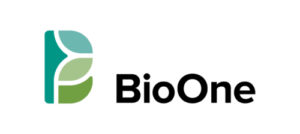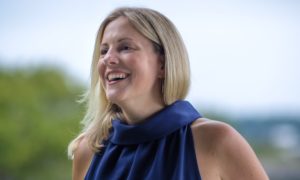 Lauren Kane says the future of BioOne is all about collaboration.
Lauren Kane says the future of BioOne is all about collaboration.
During her first week as the organization’s new president and chief executive officer in January, she convened a working group of leaders from other nonprofit scholarly publishing aggregators to share challenges, opportunities, and best practices.
“We will never have more impact unless we broaden our reach through partnerships, alliances and through working with others,” said Kane, who leads the Washington, D.C.-based nonprofit.
BioOne, founded in 1999 and launched in 2001, provides libraries with a low-cost collection of curated titles and publishers with a community-based platform to distribute their journals. It works with more than 150 nonprofit publishers and 3,500 libraries, serving researchers, educators and students in the U.S. and internationally.
SPARC was a founding organization of BioOne, raising start-up funds from the library community to provide the capital to fund its launch. From the start, the work of the organizations closely aligned: both are dedicated to a sustainable, equitable publishing ecosystem within the reach of all.
BioOne’s structure allows its non-profit publishing partners to retain independence and editorial control, including the crucial decision of access and business model. Yet as the landscape changes, Kane said she is exploring ways to facilitate a sustainable transition to open access that works for smaller, less funded titles. Subscribe to Open (S2O) is among the approaches, Kane said, she’s following with interest. It’s appealing as a community-support model and one that the library community is encouraging further investigation. (For details see Equity is at Heart of Subscribe to Open Model – SPARC)
Over the years, BioOne has broadened its reach and Kane has been a part of that expansion. Before becoming CEO, she was with the organization for 13 years, serving in various roles including chief strategy and operating officer. In Kane’s time away from BioOne, she was CEO of the strategic consultancy Delta Think, and Chief Publishing Officer for the publishing technology company Morressier. In 2020-2021, she was president of the Society for Scholarly Publishing (SSP).
Taking the helm of BioOne, Kane said she wants to chart her own path with the organization and recognizes opportunity with so much accelerated activity, including that created by the new memo from the White House Office of Science and Technology Policy. The future is in forming alliances, she said, and not working in silos.
If BioOne is dedicated to banding together small societies and independent publishers for a greater benefit, the question is how to do that at a greater scale, Kane said. Part of that is finding a viable and financially sustainable means for open access through collective action.
As an aggregator, BioOne recognizes individual societies and journals make their own decisions about dissemination models and there is no one-size fits all approach, Kane said.
“We recognize that the future is open and want to encourage and facilitate a sustainable transition,” she said. “We want to provide our partners with support, sharing experiences and ideas that may lead to broader change.”
Another challenge, said Kane, is that BioOne primarily partners with journals in the life sciences, which does not have the same level of significant funding as medicine or other fields, and which would be unlikely to be sustained by a fully-APC model.
In her new role, Kane said she hopes to elevate the story of BioOne, which grosses about $12 million a year in revenue and which, over the last 20 years, has returned $63 million back to its participating publishers, reinvesting tight library funds in independent scholarly publishing. Her early strategic focus includes increasing community involvement and collaboration, facilitating new product development, and open access investigation.
Kane said she’s looking forward to leading BioOne into its next phase in partnership with others while staying true to its mission: to provide more equitable access to research and to disseminate research more broadly, as well as to provide an alternative to commercial publishing models for the benefit of both societies and libraries.
“There’s so much more energy than there used to be for collaborations, because people are realizing there are too many challenges that we can’t face alone,” Kane said. “Nonprofits could be incredibly powerful working together more effectively in this space.”